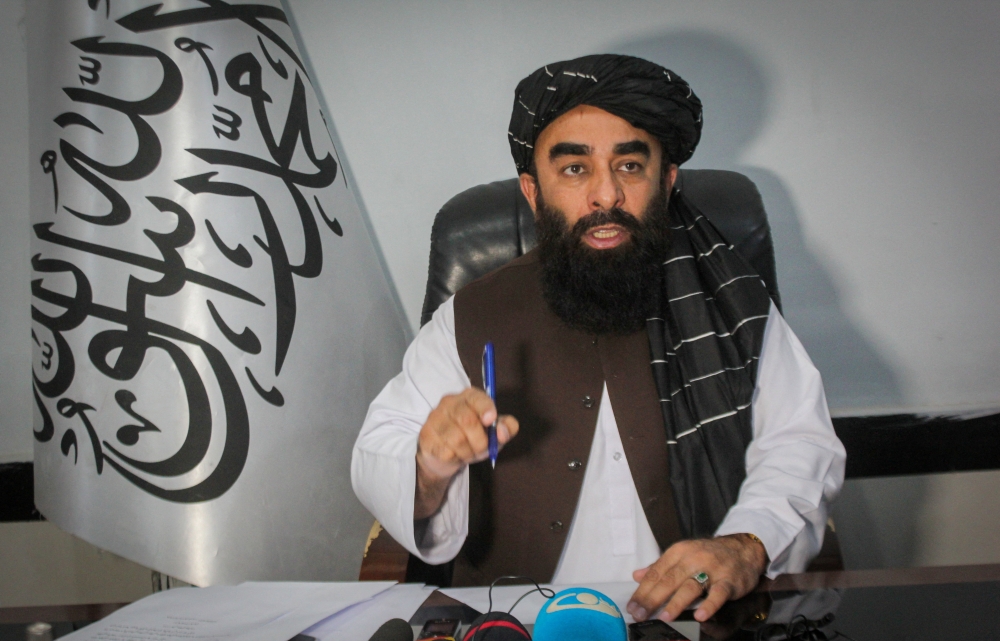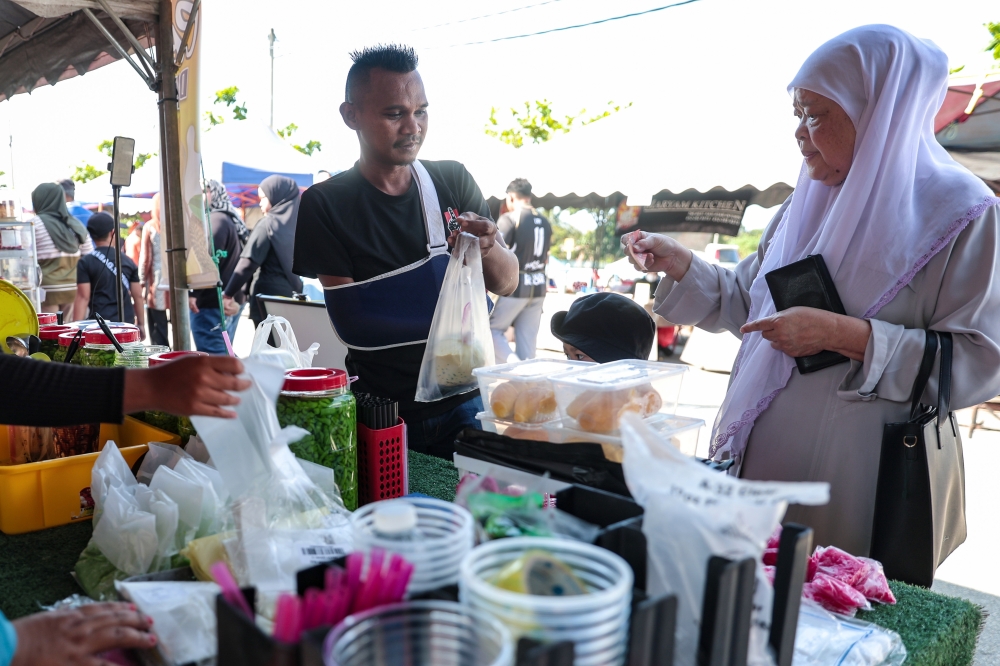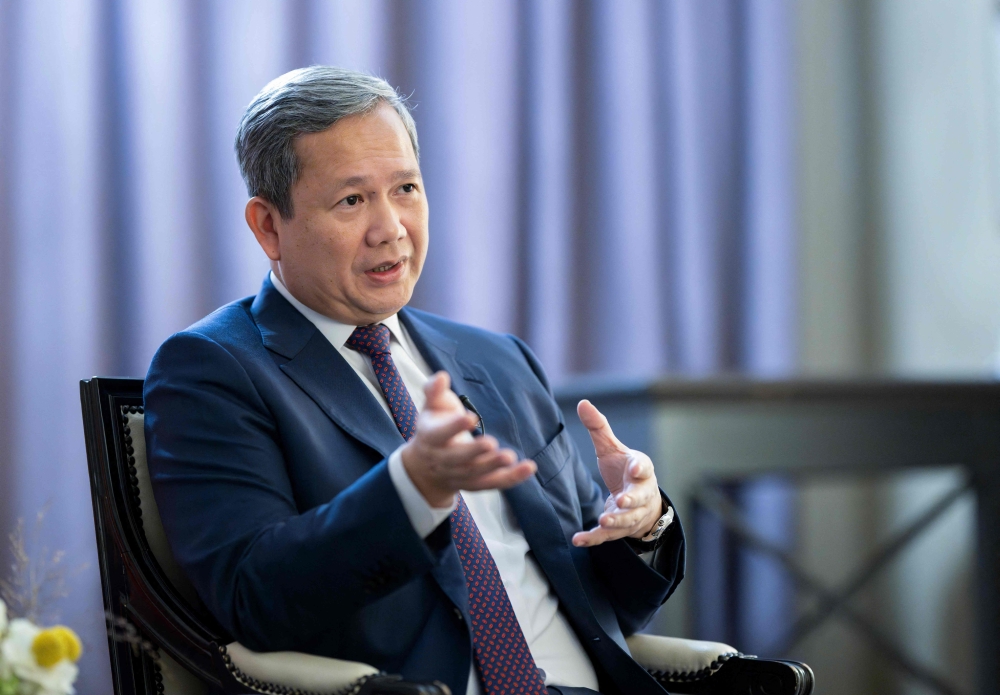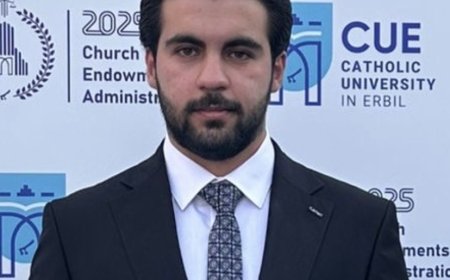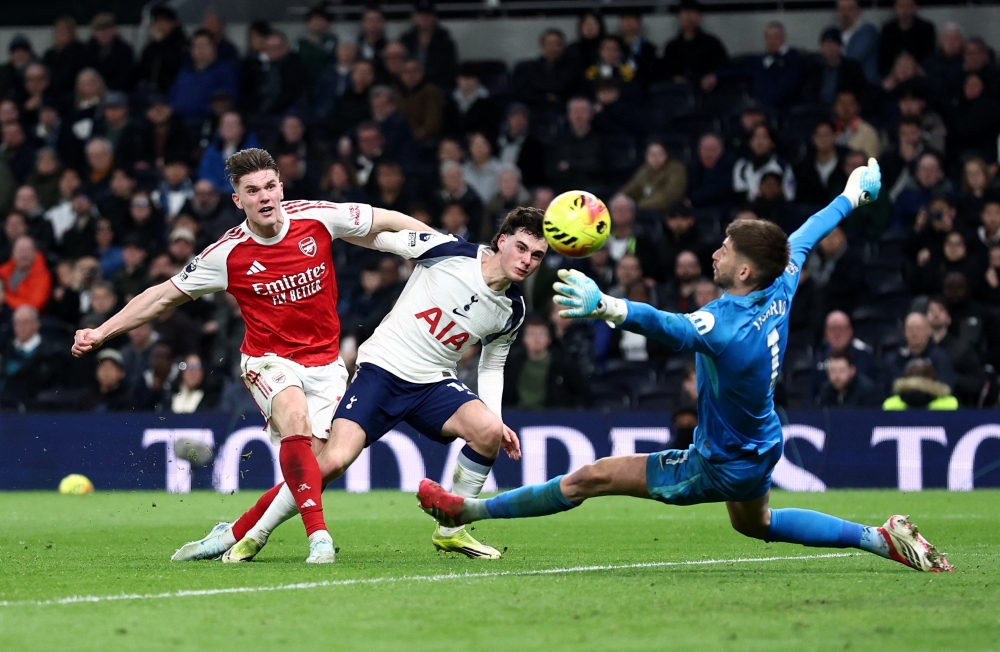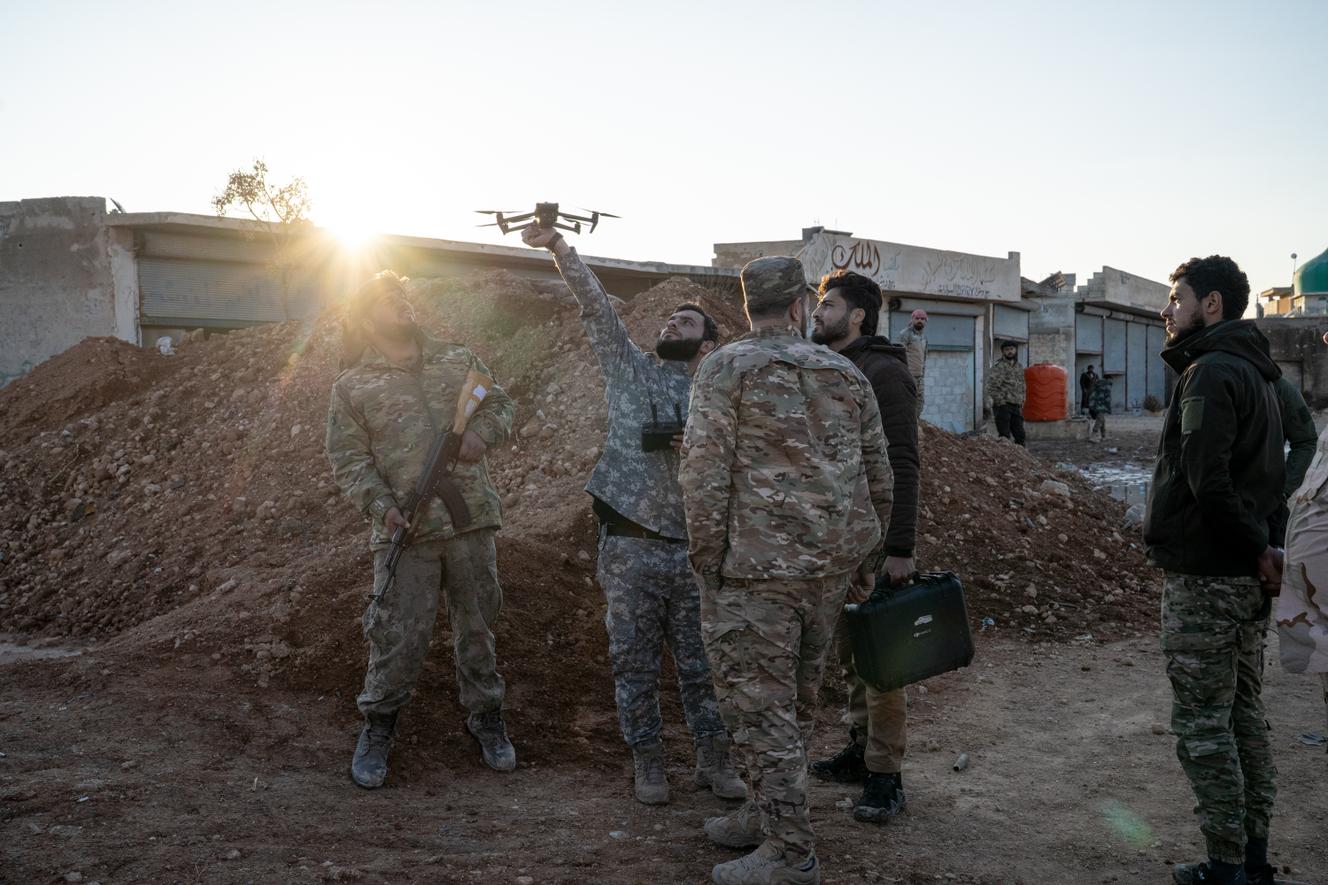Intrigue and Power in Iraqi Kurdistan: The PUK’s Battle for Dominance
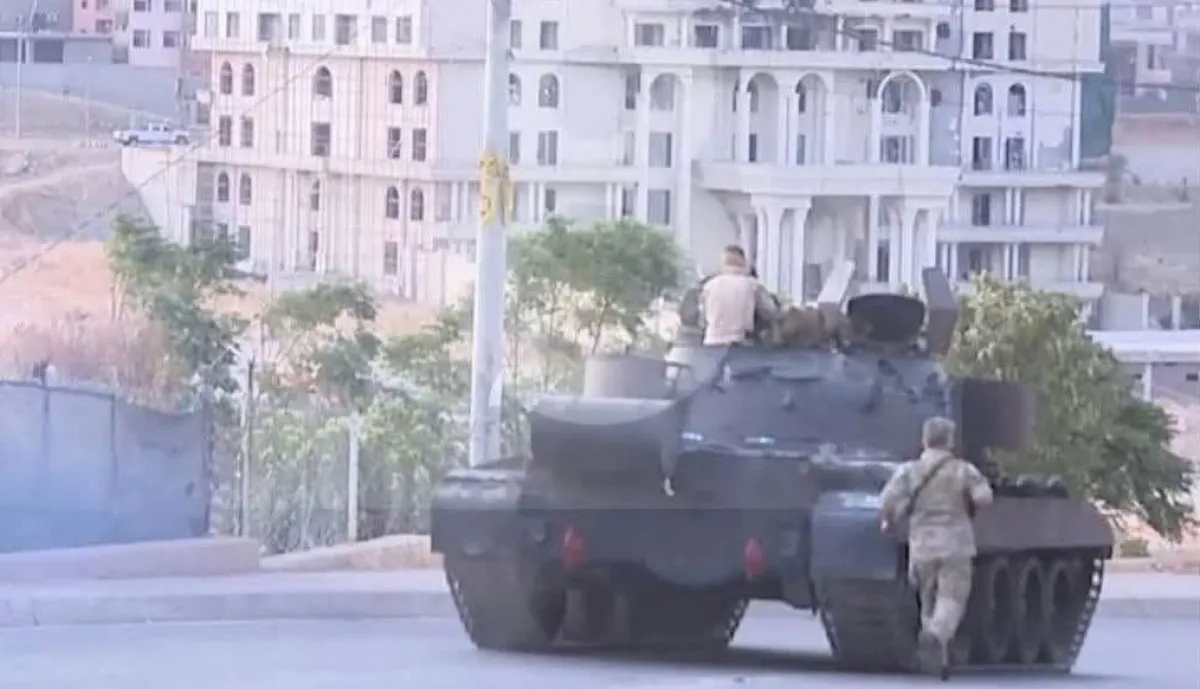
In the late hours of August 21 and early August 22, the city of Sulaimaniyah in Iraq’s autonomous Kurdistan Region became the site of one of the most dramatic internal Kurdish confrontations in recent memory. Security units loyal to the Patriotic Union of Kurdistan (PUK), one of the two dominant Kurdish parties, stormed Lalazar, a well-known hotel in Sulaimaniyah, that had been converted into the headquarters of the People’s Front (Berey Gel in Kurdish). The raid, marked by the deployment of tanks, drones, and heavy weaponry, shattered the otherwise quiet rhythm of this vibrant city, the second largest in Iraqi Kurdistan. The stated purpose of the assault was to serve a disputed arrest warrant for Lahur Sheikh Jangi, leader of the People’s Front. Following a multi-hour clash that left an estimated 30 to 50 fighters from both sides dead, Jangi was arrested in a humiliating scene. His brother Polad was also detained, suffering a leg wound sustained during the confrontation. For residents, images of armored vehicles moving through Sulaimaniyah’s streets evoked fear and disbelief, underscoring the fragility of the political order that governs their lives. Sulaimaniyah has been a PUK stronghold, remaining under the party’s control since the end of the civil war between the PUK and its main rival, the Kurdistan Democratic Party (KDP), in 1998.
The charges alleged that Jangi had conspired to murder PUK’s leader Bafel Talabani— a grave accusation carrying profound political implications. But what made the raid bigger than a legal issue was the family tie: Jangi is Talabani’s cousin. The son of the late Iraqi president Jalal Talabani, Bafel has been steadily consolidating his position as the uncontested leader of the party since 2021, while Jangi has resisted marginalization by launching his own movement. The clash at Lalazar symbolized not merely the execution of an arrest order, but a deeper battle for control of Sulaimaniyah and by extension a larger role within the Kurdish and Iraqi political scenes.
The family dimension is critical. Jalal Talabani, who passed away in 2017 after years of ill health, was one of the most consequential Kurdish leaders of the past century. He co-founded the PUK in 1975 and played a central role in Kurdish and Iraqi politics, culminating in his two terms as Iraq’s president after 2003. His political style, often described as pragmatic and accommodating, left behind a party that balanced diverse factions. After his incapacitation in 2012, the leadership mantle fell first to his wife Hero Ibrahim Ahmed, and later to his son Bafel and nephew Jangi. From 2017 onward, Bafel and Jangi two ran the party jointly in an unofficial capacity, before formally becoming co-chairs after the 2020 party convention. However, their rivalry eventually ruptured the party’s cohesion. In July 2021, Bafel expelled Jangi in what appeared to be a coup under the pretext that Jangi had attempted to poison him—allegations never proven in a court of law. It is highly unlikely that Iran did not approve young Talabani’s takeover of the party and the expulsion of his cousin, particularly since such high-stakes and potentially destabilizing moves in Sulaimaniyah—a zone within Iran’s sphere of influence—could not have occurred or succeeded without Tehran’s green light. This is especially true given that Jangi was in a much stronger position at the time, with the bulk of the party’s security apparatus under his control. The pent-up hostilities resulting from this power grab episode in 2021 ultimately erupted again on the bloody night of last August.
Coup or Talabani’s Presidential Ambitions?
The official justification for the raid was the enforcement of a two-year-old arrest warrant. Pro-PUK media framed the operation as the prevention of a coup attempt, claiming Jangi had orchestrated a plot, in coordination with Azhi Amin, another former PUK intelligence commander currently based in Erbil and aligned with the KDP, to depose Talabani and reclaim leadership. Local security forces even released “confessions” by individuals allegedly hired and trained for the task. Reports alleged that Jangi was exploiting shifting regional dynamics after 7 October 2023, when the war between Israel and Hamas triggered a chain of geopolitical tremors across the Middle East. In this telling, Jangi was poised to capitalize on the perceived decline of the Iran-led Axis of Resistance, of which the PUK is often portrayed as a component, to reassert himself in Sulaimaniyah. Yet this narrative appears tenuous. Jangi and his supporters firmly rejected the accusations as a “disgraceful scenario”, dismissing them as political theater designed to justify an illegal crackdown. The absence of an independent judiciary only deepens the doubts. Televised confessions also do not help as they are widely regarded as unreliable, often extracted under coercion and lacking judicial legitimacy.
Equally important is the broader pattern of arrests. Just days before the Lalazar raid, authorities detained Shaswar Abdulwahid, leader of the New Generation Movement. A wealthy businessman-turned-politician, Abdulwahid lacks the PUK political resources but has proven a formidable electoral competitor. In the October 2024 Kurdish parliamentary elections, New Generation performed strongly, finishing third with 15 seats across the Kurdistan Region and even breaking into PUK strongholds in Sulaimaniyah. The PUK secured 23 seats, while the KDP won 39. In early September, Abdulwahid was sentenced by a local court to five months in jail on charges of threatening a former parliamentarian from his party. Jangi’s fate remains uncertain, though his British citizenship offers a degree of protection that could enable him to survive politically and, even possibly like many before him in Kurdish and Iraqi politics, re-emerge under more favorable circumstances.
Taken together, the arrests suggest that the issue is less about thwarting a coup than about reshaping the political playing field ahead of the November 2025 Iraqi parliamentary elections. By arresting Jangi and Abdulwahid, the PUK might think it is neutralizing the political effects of two significant rivals, ensuring that Sulaimaniyah’s votes may once again flow predominantly to the PUK. It is difficult for New Generation and the People’s Front to gain much traction without their leaders, as both parties are personality-centric and closely built around Jangi and Abdulwahid. This could lead to disillusionment among their supporters and a boycott of the elections, which would serve the PUK well. As a resourceful and centralized party, the PUK can easily mobilize its base to vote and secure most of the 18 seats in its areas of control. In this context, the coup justification looks less like a credible claim and more like a pretext for consolidating dominance.
Discussions with informed sources about Kurdish and Iraqi politics indicate that Bafel Talabani’s ultimate ambition is to ascend to Iraq’s presidency. Since 2005, the office has been held by Kurdish politicians, with the PUK monopolizing the role. For the party, maintaining the presidency has served both symbolic and practical purposes: it compensates for the KDP’s dominance of the Kurdistan Regional Government (KRG) and provides international visibility. For Talabani, the presidency offers an opportunity to elevate his personal stature, rebuild his family’s legacy, consolidate PUK influence in Baghdad, and pull the party out of the isolation it had faced since his father’s illness in the early 2010s. To achieve this requires strengthening the PUK’s standing in Iraqi politics and weakening his Kurdish rivals.
By imprisoning Jangi and Abdulwahid, the PUK disrupts two parties competing over what the it considers its home turf. If the PUK increases its parliamentary seats beyond the current 18, it would gain greater leverage in Baghdad and strengthen Talabani’s claim to the presidency. Additionally, if Talabani moves to Baghdad to serve as Iraq’s president, by having quashed his two main challengers, he can be less worried about a rebellion brewing in Sulaimaniyah during his absence — a lesson he should have drawn from his father’s tortuous experience with internal party splits and political revolts while he was Iraq’s president.
Implications for Kurdish Political Trajectory”?
The crackdown represents a turning point for both the PUK and Kurdish politics more broadly. Historically, the PUK distinguished itself from the KDP by fostering a comparatively more pluralistic environment, particularly in Sulaimaniyah. Under Jalal Talabani’s leadership, opposition parties, independent media, and civil society organizations enjoyed greater freedom in the PUK zone than the KDP. The events of August, however, suggest that this legacy is being dismantled. Deploying tanks against a political rival and jailing opposition leaders undermines the PUK’s image as a relatively tolerant force. It also underscores the persistence of family dominance and central personalities in Kurdish politics, where nearly every major party has been led for decades by a single family or figure.
If Talabani’s strategy succeeds, the PUK could reassert dominance in Sulaimaniyah and Halabja, areas it has struggled to control since 2009. That year, Nawshirwan Mustafa, Jalal Talabani’s longtime deputy, broke away to form the Change Movement (Gorran). In an ironic twist of Kurdish history, Mustafa split from Talabani largely for the same reasons senior Talabani had broken away from the KDP decades earlier: domination of the party by a single individual and the absence of democratic decision-making mechanisms. Gorran’s rise marked the first serious electoral challenge to the PUK in its own heartland, reshaping Kurdish politics for nearly a decade. By suppressing rivals, Talabani seeks to reverse this trend and restore uncontested dominance for his party. For residents of Sulaimaniyah, the prospect of political monopoly raises concerns about shrinking space for dissent and authoritarianism. But, an informed Kurdish source the author has spoken to note a measure of respect in Erbil for the young Talabani’s ability to establish himself as a leader capable of bringing the PUK and Sulaimaniyah under firm control.
The implications of the developments in Sulaimaniyah are significant. A stronger PUK could recalibrate the balance of power with the KDP, potentially leading to a new equilibrium in Kurdish politics. In other words, in the medium to long run, this could push the two parties toward another power-sharing arrangement similar to their 2006 strategic agreement whereby the two sides decided to equally split Kurdish positions in the KRG and Baghdad. In the short term, however, it likely risks heightened tensions and instability as the PUK will struggle to secure a greater share of power for itself. Owing to Iraq’s ethnic-sectarian quota system of division of power, or muhasasa, and the internal dynamics of Kurdish politics — a legacy of the KDP-PUK strategic alliance— the PUK has enjoyed an outsized share of power in the country. For context, unlike the PUK, which holds 18 seats in Iraqi parliament, neither the KDP, with 31 seats, nor other groups such as the State of Law Coalition of former Shia Prime Minister Nouri al-Maliki, with 38 seats, have secured major positions in Baghdad such as premiership or presidency (which the PUK holds).
Complicated Regional Geopolitics and PUK’s Balancing Act
The regional context adds another layer of complexity. The PUK has historically maintained close ties with Iran, dating back to the 1980s when it was a party in exile and later the 1990s civil war in Kurdistan (when the KDP was supported by Baghdad and Ankara). Iran has provided political and security support, viewing the PUK as a reliable partner within its sphere of influence. Against this backdrop, The PUK media’s insinuations that Jangi and his alleged co-plotters sought to exploit regional turmoil to overthrow the current leadership served as a tacit message to Tehran. It portrayed Jangi as viewing the decline of the Iran-led axis as an opportunity to strike, and thus painting him as belonging to the anti-Iran camp.
Tehran’s response, though indirect, was revealing. Tasnim News Agency, affiliated with the Islamic Revolutionary Guard Corps, accused Jangi’s associates of training with Ukrainians and alleged that Jangi was “close to the United States and the Zionist regime.” Although Sulaimaniyah security bureau released televised confessions of Jangi’s men allegedly plotting to kill Talabani and claiming to have trained in Ukraine (a charge the Ukrainian Embassy in Baghdad denied), they did not level accusations against Israel — or against the United States, with which the PUK still maintains a significant relationship. The Ukraine angle was likely intended to draw an analogy to Hay’at Tahrir al-Sham’s drone training with Ukrainians, as the group toppled Iran-aligned Bashar al-Assad’s regime in Syria in December 2024.
However, the reality is more complex. Following the major blows to the Iran-led axis since late last year, such as the Lebanese Hezbollah’s unprecedented degradation and the fall of the Bashar al-Assad regime in Syria, the PUK appears to be gradually hedging its bets away from Iran. This year, it supported major gas contracts between the KRG and U.S.-based companies HKN Energy and WesternZagros, valued at approximately USD 110 billion. These fields lie in PUK-controlled areas, making Talabani’s approval essential. The deals challenge Iran’s energy dominance in Iraq, where it generates between USD 4 to 5 billion per year in vital revenue from gas exports to Iraq, despite biting U.S. sanctions. To signal its displeasure with the PUK, the KRG energy policy, and the broader Kurdish silence during the 12-Day War, pro-Iran groups responded by launching over 20 attacks on Kurdish energy infrastructure in July, including in PUK areas.
These developments reflect PUK’s difficult position and the delicate balancing act necessitated by geopolitical constraints and the reality that Iran is the only external neighbor of the PUK-controlled zone. While maintaining ties with Iran, the PUK simultaneously engages Western companies and governments to secure economic and political gains. Overall, Iran will be watching the PUK’s behavior closely in the coming period and will likely seek to punish any attempts by the party to drift away from its orbit. In light of all this, the crackdown on Jangi might have occurred with Iran’s prior knowledge, if not its approval, particularly if Tehran believed Jangi was attempting to exploit its weakness to dislodge the current PUK leadership.
PUK Playing the Classic “Anti-KDP” Card
For all its internal turmoil, the PUK retains one enduring asset: its role as the principal counterweight to the KDP in Kurdish politics. Since its founding in 1975, the PUK has defined itself in opposition to the KDP. This rivalry has shaped Kurdish politics for decades, often at great cost. The 1990s civil war divided the Kurdistan Region into PUK- and KDP-controlled zones, a division that persists informally today.
The aftermath of the 2017 independence referendum illustrated this dynamic. The KDP, led by Masoud Barzani, pushed ahead with the vote despite regional and international opposition. The PUK formally supported the referendum but ultimately undermined it by colluding with Baghdad and Iranian forces, facilitating the reassertion of Baghdad’s control, with Iran’s direct intervention, over territories that Kurds had brought under their control since 2003 and 2014. For the KDP and many Kurds, this was a betrayal; for the PUK, it was a misguided opportunity to weaken the KDP.
This anti-KDP positioning continues to define the PUK’s strategy and its main appeal to other Iraqi and regional actors. By portraying itself as the alternative to KDP hegemony, the PUK secures relevance in both Baghdad and regional politics. External actors seeking to reshape the balance of power in Kurdistan often view the PUK as a useful partner. Internally, this stance also appeals to constituencies in Sulaimaniyah that resent the KDP’s dominance over Kurdish affairs.
Yet the rivalry has also proven limiting. While it ensures the PUK’s relevance, it constrains its ability to articulate a positive vision for governance. The party’s identity remains reactive, defined more by opposition to the KDP than by proactive policy agendas. This also makes the PUK’s standing and weight inescapably dependent on the KDP, necessitating engagement with it. Without the KDP, the PUK would likely become the target of Baghdad’s and other regional actors’ wrath, depending on which side it aligns with. As for the KDP, while it may find dealing with the PUK difficult, it appears to prefer that to chaos in Sulaimaniyah that would fundamentally destabilize the KRG and open space for direct intervention from Baghdad and other regional powers.
For now, the PUK appears firmly in charge in Sulaimaniyah, but the show of force seems to have come at the cost of alienating many in the city and across Kurdistan. Even so, the party heads into the parliamentary elections and KRG cabinet formation with renewed momentum and a tighter machine. Whether that advantage endures will hinge on how it manages dissent and secures buy-in rather than mere compliance, bargains with the KDP and Baghdad, and navigates the ongoing regional transformation.
[Source - Mohammed A. Salih - Eye on Kurdistan]


